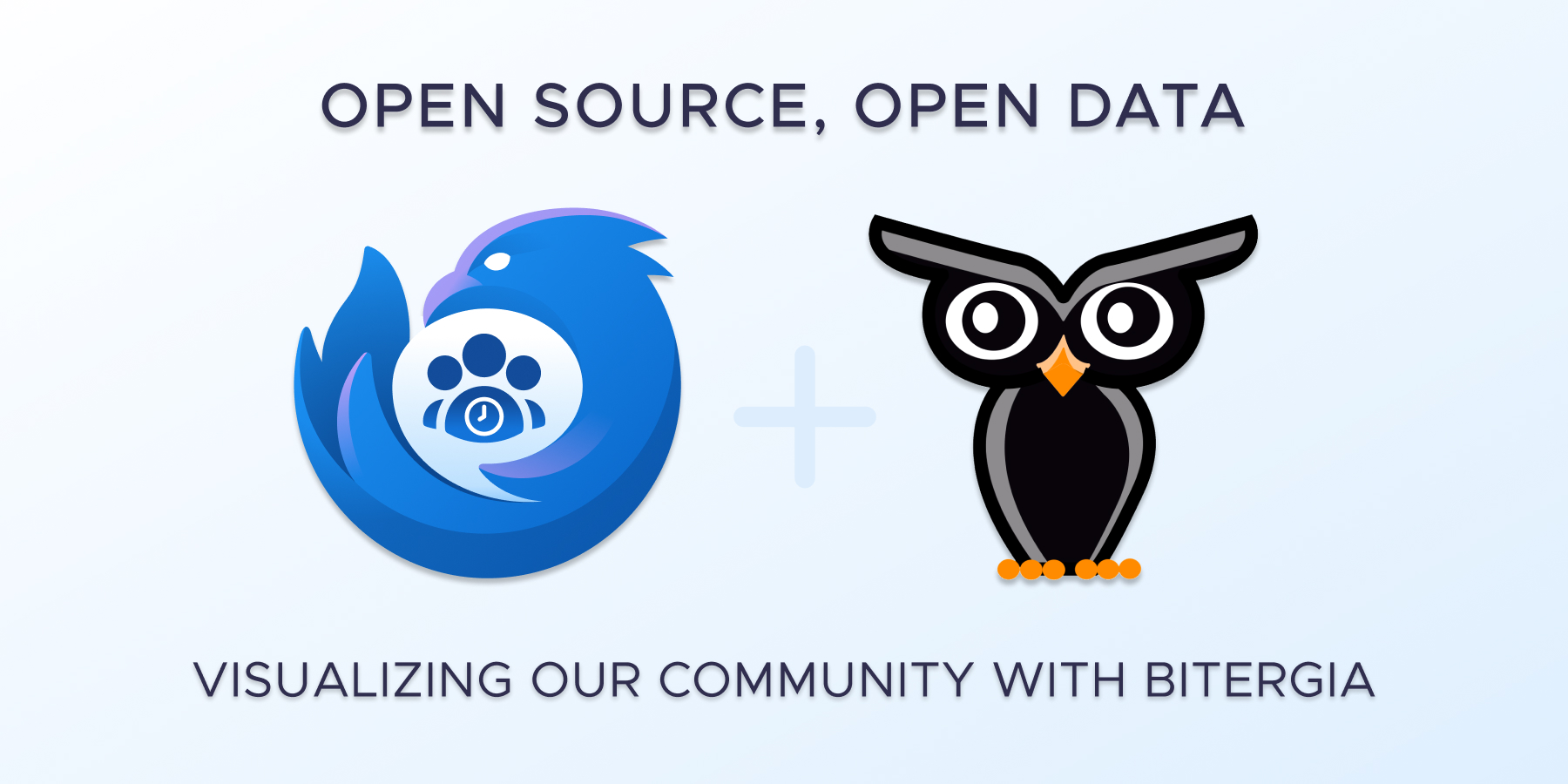
Open Source, Open Data: Visualizing Our Community with Bitergia
Thunderbird’s rich history comes with a complex community of contributors. We care deeply about them and want to support them in the best way possible. But how does a project effectively do just that? This article will cover a project and partnership we’ve had for most of a year with a company called Bitergia. It helps inform the Thunderbird team on the health of our community by gathering and organizing publicly available contribution data.
In order to better understand what our contributors need to be supported and successful, we sought the ability to gather and analyze data that would help us characterize the contributions across several aspects of Thunderbird. And we needed some data experts that understood open source communities to help us achieve this endeavor. From our relationship with Mozilla projects, we recalled a past partnership between Mozilla and Bitergia, who helped it achieve a similar goal. Given Bitergia’s fantastic previous work, we explored how Thunderbird could leverage their expertise to answer questions about our community. Likewise, you can read Bitergia’s complimentary blog post on our partnership as well.
Thunderbird and Bitergia Join Forces
Thunderbird and Bitergia started comparing our data sources with their capabilities. We found a promising path forward on gathering data and presenting it in a consumable manner. The Bitergia platform could already gather information from some data sources that we needed, and we identified functionality that had to be added for some other sources.
We now have contribution data sets gathered and organized to represent these key areas where the community is active:
- Thunderbird Codebase Contributions – Most code changes take place in the Mercurial codebase with Phabricator as the code reviewing tool. This Mercurial codebase is mirrored in GitHub which is more friendly and accessible to contributors. There are other important Thunderbird repositories in GitHub such as Thunderbird for Android, the developer documentation, the Thunderbird website, etc.
- Bug Activity – Bugzilla is our issue tracker and an important piece of the contribution story.
- Translations – Mozilla Pontoon is where users can submit translations for various languages.
- User Support Forums – Thunderbird’s page on support.mozilla.org is where users can request support and provide answers to help other users.
- Email List Discussions – Topicbox is where mailing lists exist for various areas of Thunderbird. Users and developers alike can watch for upcoming changes and participate in ongoing conversations.
Diving into the Dashboards
Once we identified the various data sets that made sense to visualize, Bitergia put together some dashboards for us. One of the key features that we liked about Bitergia’s solution is the interactive dashboard. Anyone can see the public dashboards, without even needing an account!
All of our dashboards can be found here: https://thunderbird.biterg.io/
All of the data gathered for our dashboards was already publicly available. Now it’s well organized for understanding too! Let’s take a deeper look at what this data represents and see what insights it gives us on our community’s health.
Thunderbird Codebase Contributions
As stated earlier, the code contributions happen on our Mercurial repository, via the Phabricator reviewing tool. However, the Bitergia dashboard gathers all its data from GitHub, the Mercurial mirror pluss our other GitHub repositories. You can see a complete list of GitHub repositories that are considered at the bottom of the Git tab.
One of the most interesting things about the codebase contributions, across all of our GitHub repositories, is the breakdown of which organizations contribute. Naturally, most of the commits will come from people who are associated with Thunderbird or Mozilla. There are also many contributors who are not associated with any particular organization (the Unknown category).
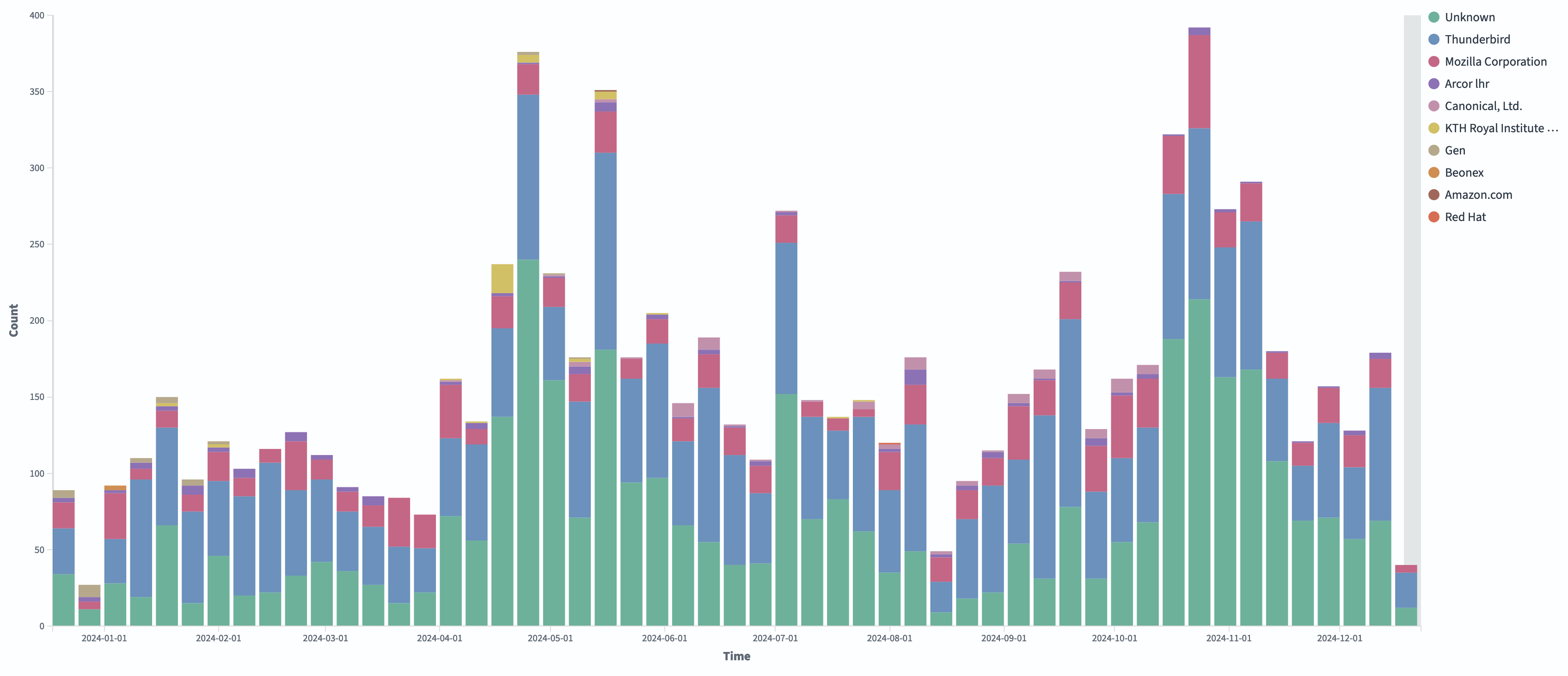
One thing we hope to see, and will be watching for, is for the number of contributors outside of the Thunderbird and Mozilla organizations to increase over time. Once the Firefox and Thunderbird codebases migrate from Mercurial to git, this will likely attract new contributors and it will be interesting to see how those new contributions are spread across various organizations.
Another insightful dashboard is the graph that displays our incoming newcomers (seen from the Attracted Committers subtab). We can see that over the last year we’ve seen a steady increase in the number of people that have committed to our GitHub repositories for the first time. This is great news and a trend we hope to continue to observe!
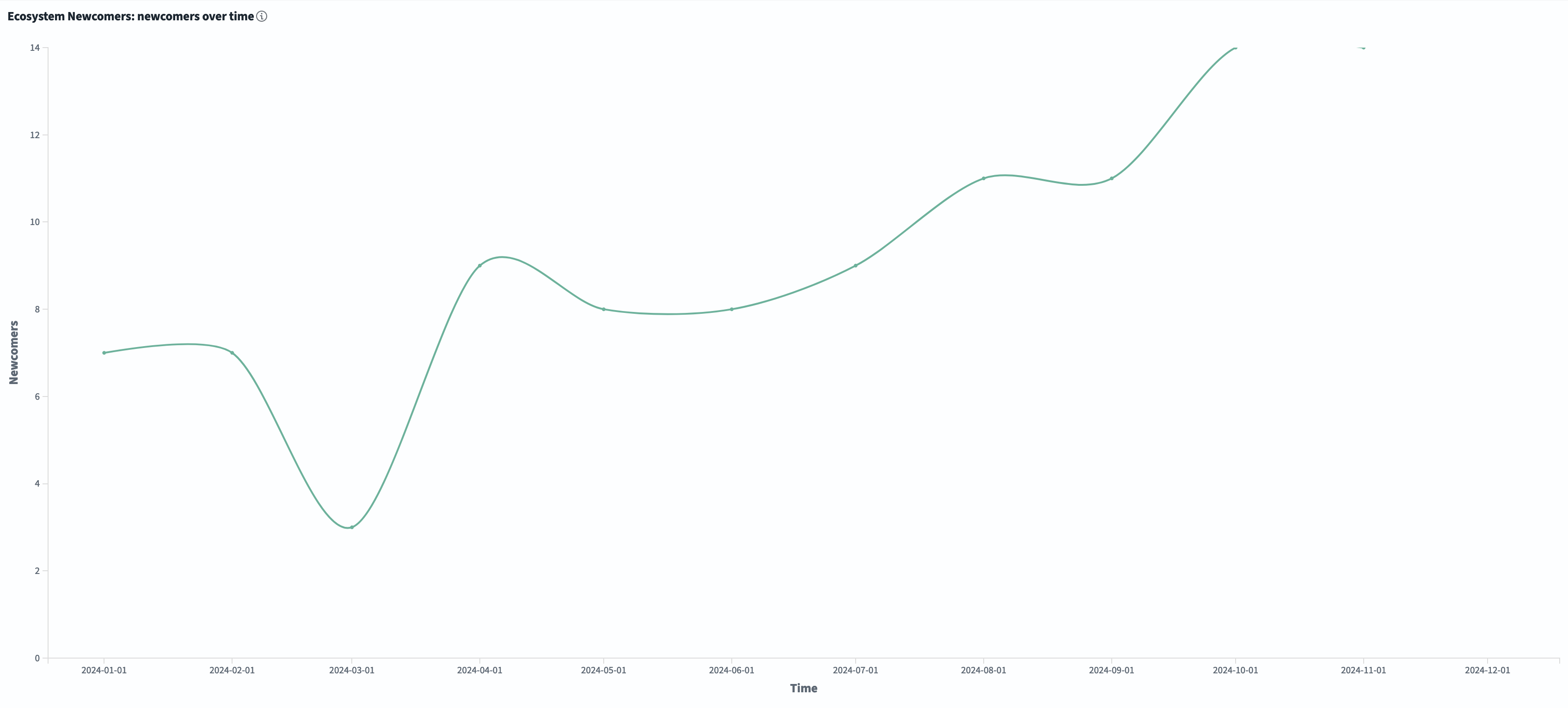
Bug Activity
All codebases have bugs. Monitoring discovered and reported issues can help us determine not only the stability of the project itself, but also uncover who is contributing their time to report the issues they’ve seen. Perhaps we can even run some developer-requested test cases that help us further solve the user’s issue. Bug reporting is incredibly important and valuable, so it is obviously an area we were interested in. You can view these relevant dashboards on the Bugzilla tab.
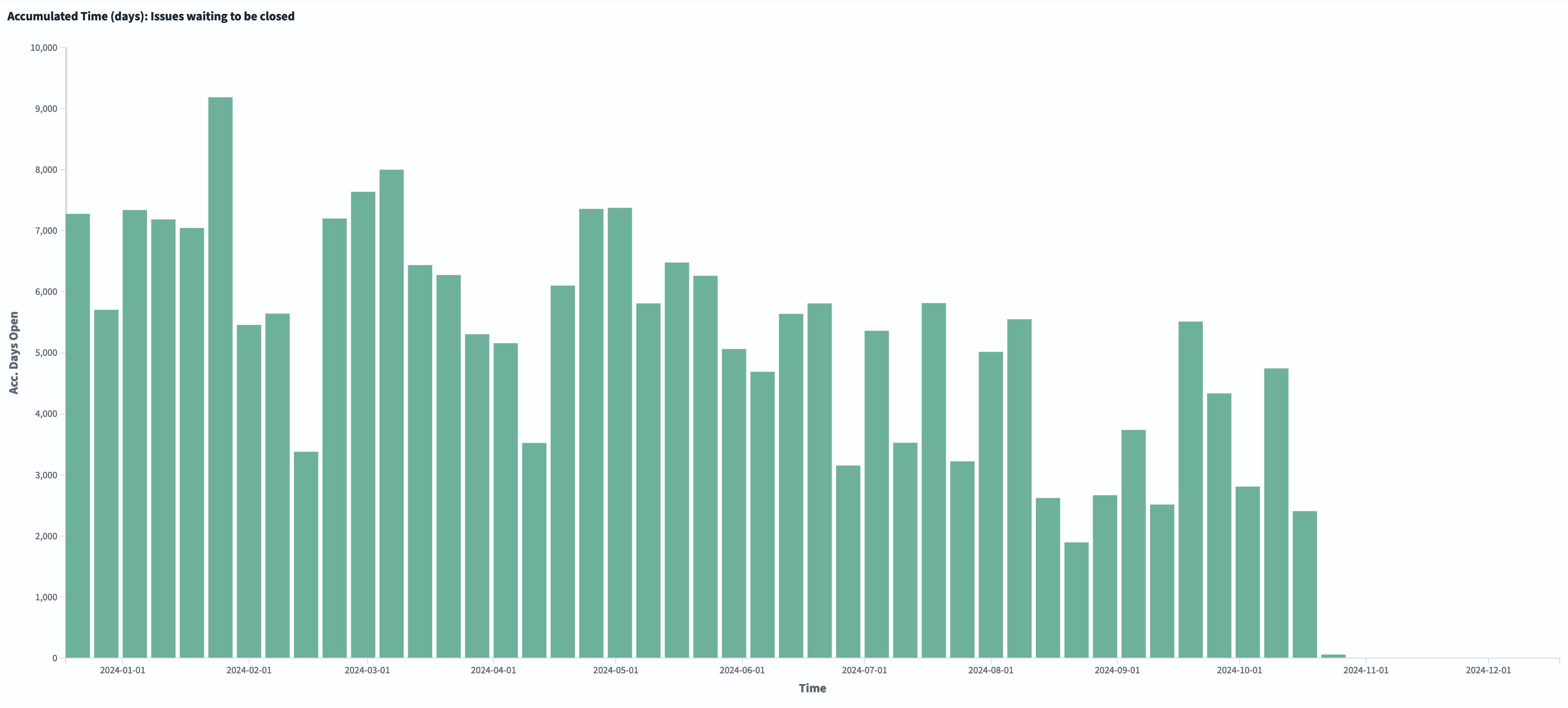
Translations
Many newcomers’ first contribution to an open source project is through translations.. For the Firefox and Thunderbird projects, Pontoon is the translation management system, and you can find the Translation contribution information on the Pontoon tab.
Naturally, any area of the project will see some oscillating contribution pattern for several reasons and translations are no different. If we look at the last 5 years of translation contribution data, there are several insights we can take away. It appears that the number of contributors drop off after an ESR release, and increase in a few chunks in the months prior to the release of the next ESR. In other words, we know that historically translations tend to happen toward the end of the ESR development cycle. Given this trend, If we compare the 115 ESR cycle (that started in earnest around January 2023) to the recent 128 ESR cycle (that started around December 2023), then we see far more new contributors, indicating a healthier contributor community in 128 than 115.
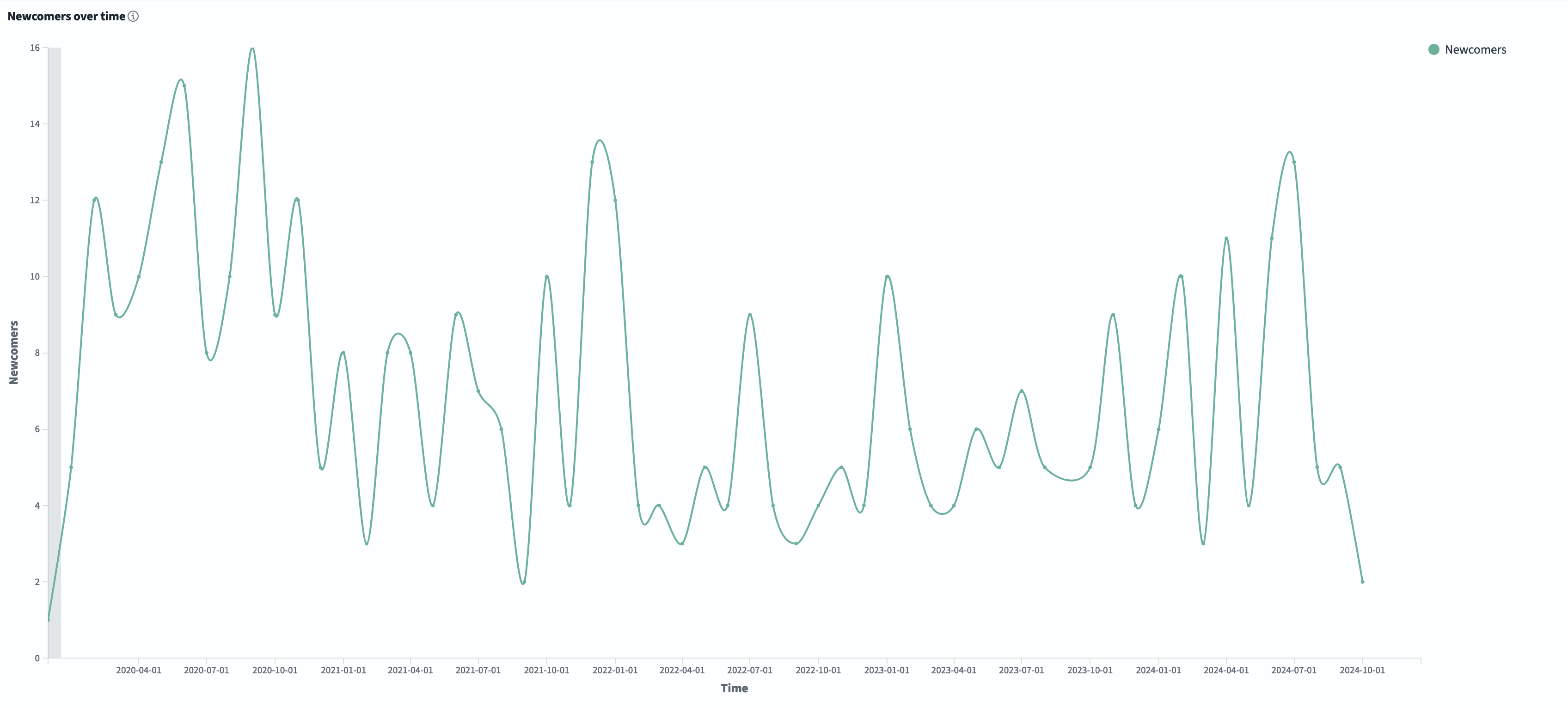
User Support Forums
Thus far we have talked about various code contributions that usually come from developers, but users supporting users is also incredibly important. We aim to foster a community that happily helps one another when they can, so let’s take a look at what the activity on our user support forums looks like in the Support Forums tab.
For more context, the data range for these screenshots of the user support forum dashboards has been set to the last 2 years instead of just the last year.
The good news is that we are getting faster at providing the first response to new questions. The first response is often the most important because it helps set the tone of the conversation.
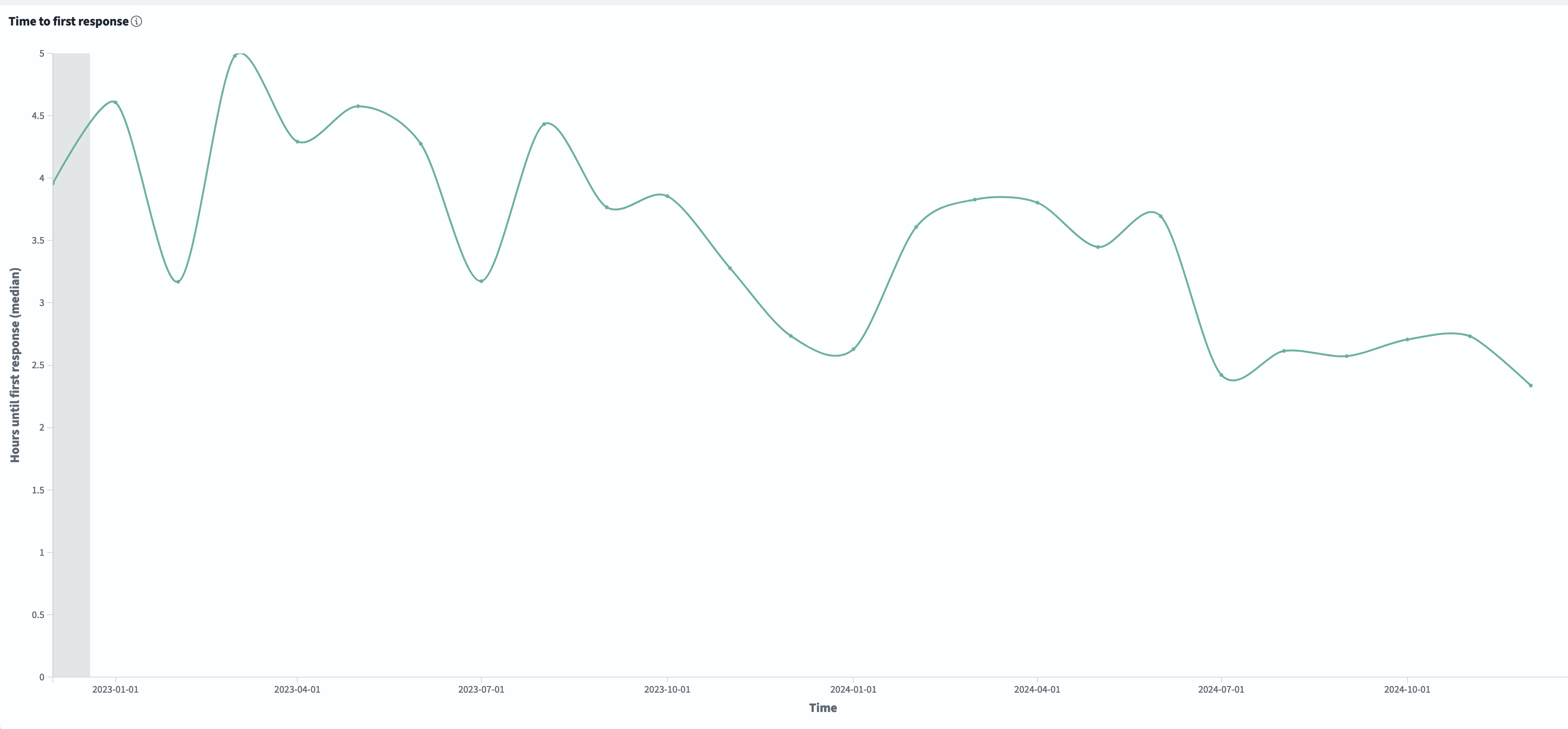
The bad news is that we are getting slower at actually solving the new questions, i.e. marking the question as “Solved”. In the below graph, we see that over the last two years, our average time to mark an issue as “Solved” is affecting a smaller percentage of our total number of questions.
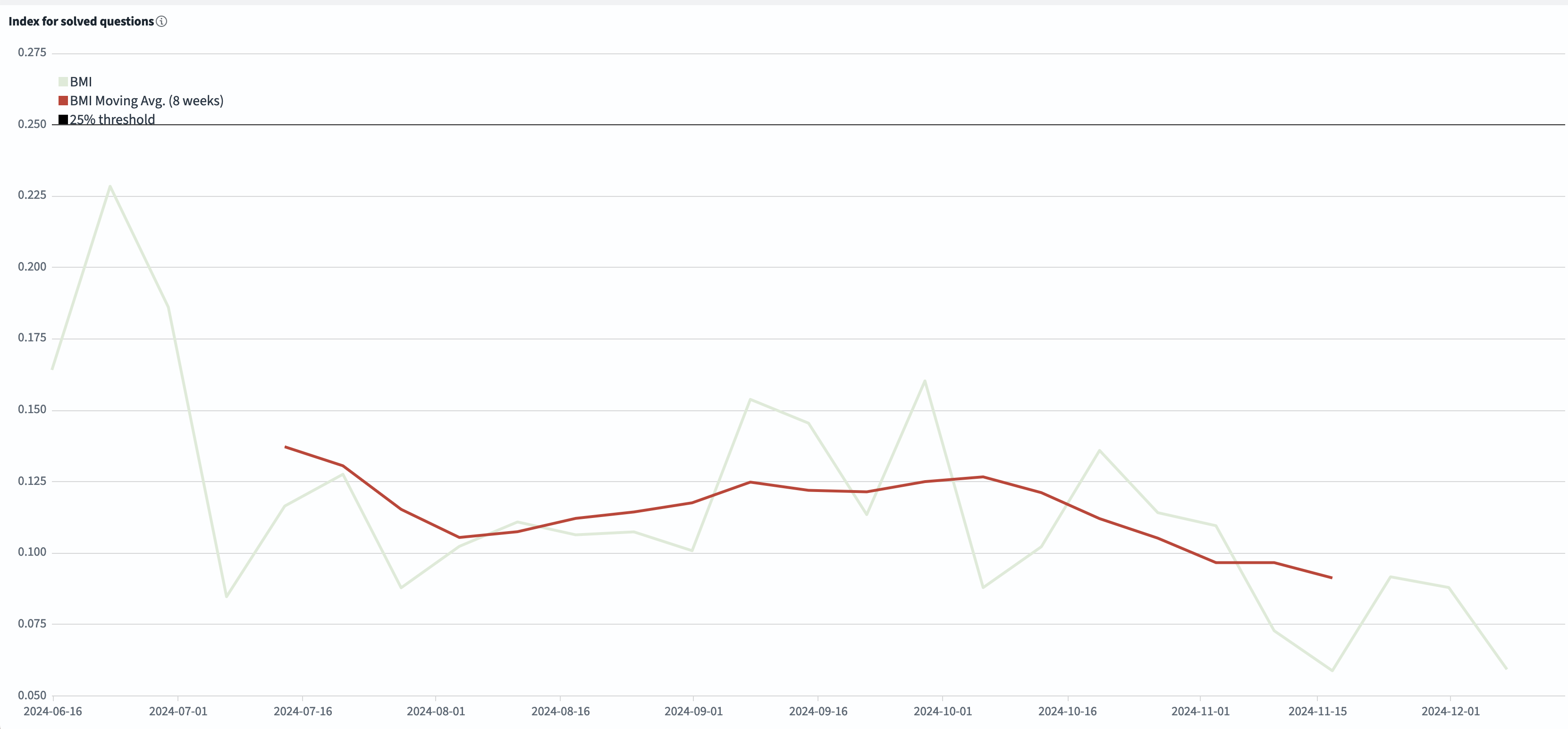
The general take away is that we need help in answering user support questions. If you are a knowledgeable Thunderbird user, please consider helping out your fellow users when you can.
Email List Discussions
Many open source projects use public mailing lists that anyone can participate in, and Thunderbird is no different. We use Topicbox as our mailing list platform to manage several topic-specific lists. The Thunderbird Topicbox is where you can find information on planned changes to the UI and codebase, beta testing, announcements and more. To view the Topicbox contributor data dashboard, head over to the Topicbox tab.
With our dashboards, we can see the experience level of discussion participants. As you might expect, there are more seasoned participants in conversations. Thankfully, less experienced people feel comfortable enough to chime in as well. We want to foster these newer contributors to keep providing their valuable input in these discussions!
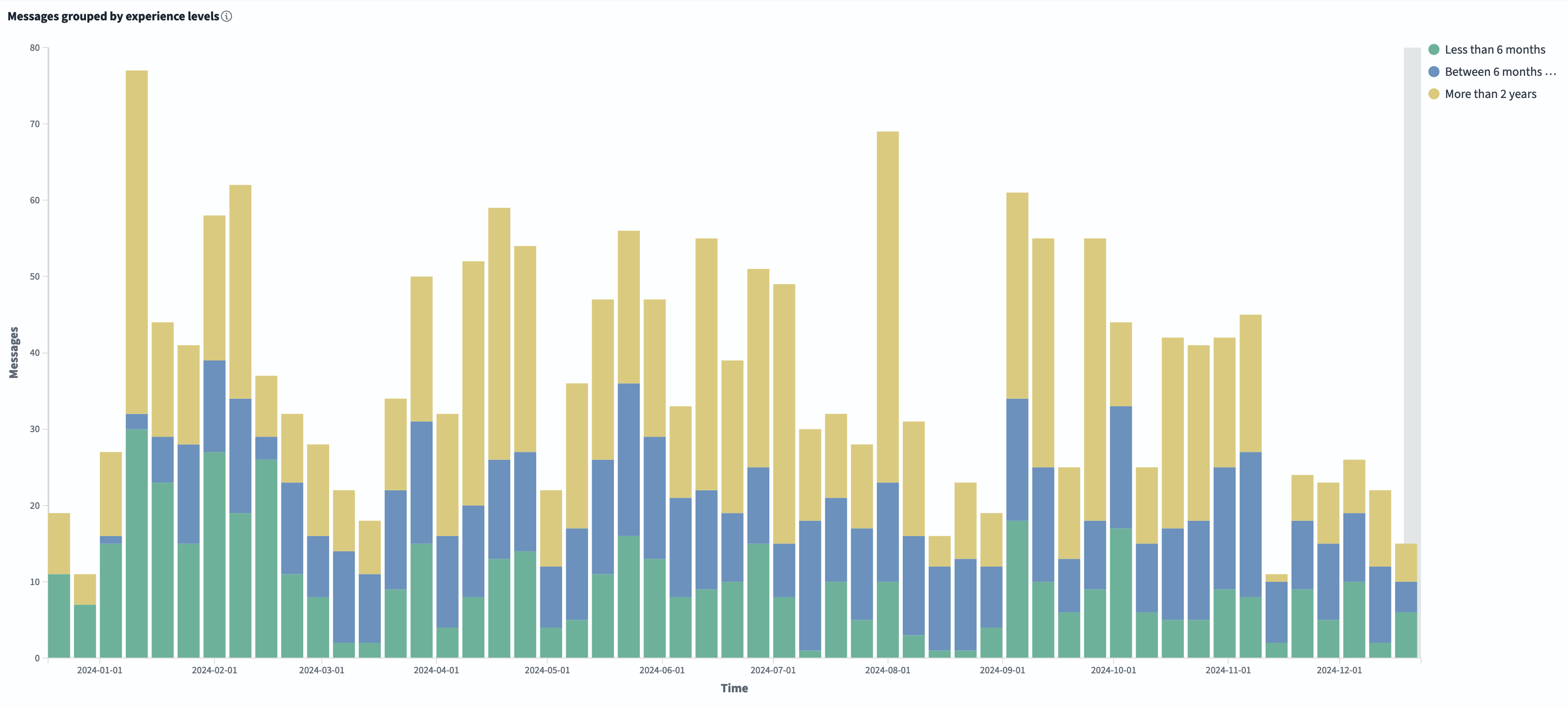
Takeaways
Having collated public contributor data has helped Thunderbird identify areas where we’re succeeding. It’s also indicated areas that need improvement to best support our contributor community. Through this educational partnership with Bitergia, we will be seeking to lower the barriers of contribution and enhance the overall contribution experience.
If you are an active or potential contributor and have thoughts on specific ways we can best support you, please let us know in the comments. We value your input!
If you are a leader in an open source project and wish to gather similar data on your community, please contact Bitergia for an excellent partnership experience. Tell them that Thunderbird sent you!
1 responses
Adam wrote on
Comments are closed.